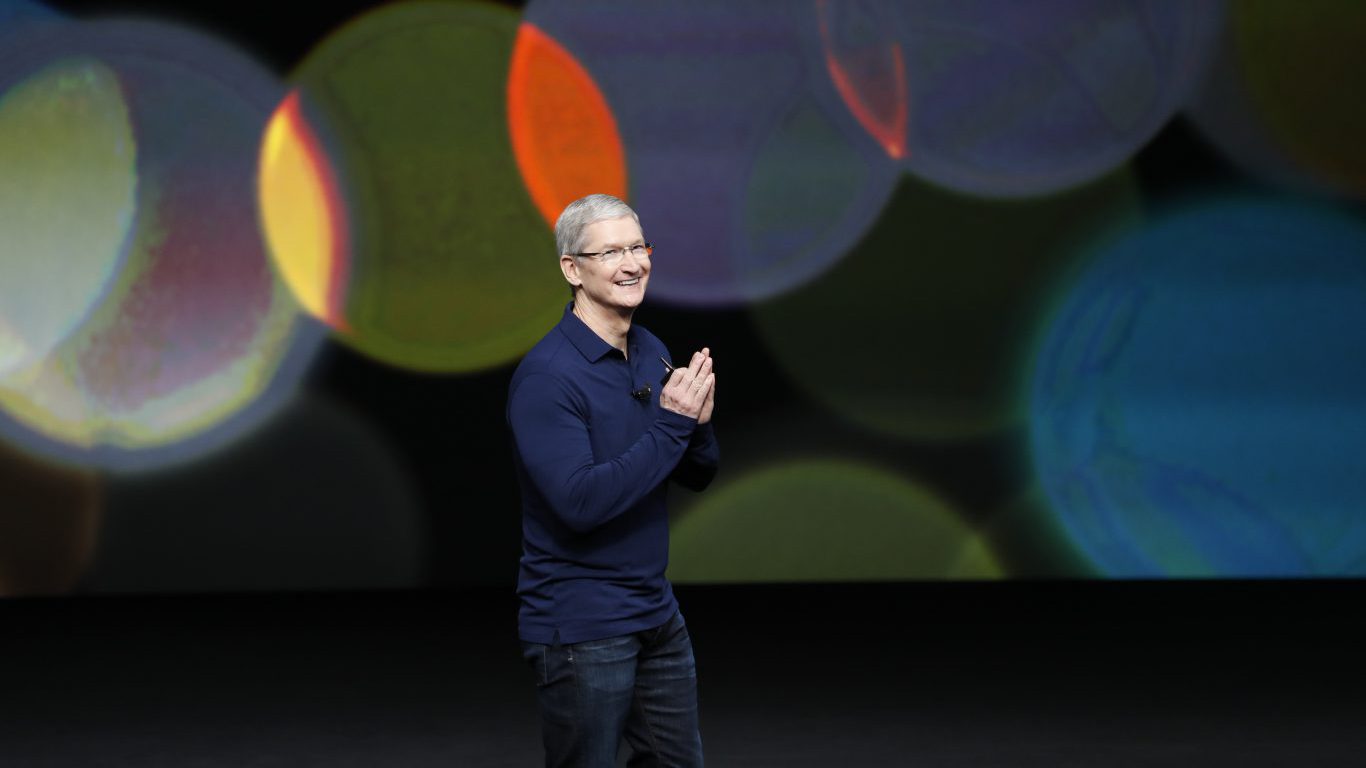Consumer Electronics
Q3 iPhone Sales Expected to Fall Within a Narrow Range

Published:
Last Updated:

Apple Inc. (NASDAQ: AAPL) fiscal reports third-quarter results after markets close today. A key number for Apple watchers is how many iPhones the company sold in the quarter.
Estimates from 17 analysts have set the range between 39.8 million and 43.3 million iPhones sold in the quarter. That averages out to just over 42 million units.
Apple’s third quarter is typically its slowest because sales of the latest model iPhones peaked in the December quarter and have trailed lower since. In the company’s fiscal first quarter ended last December, Apple sold 77.3 million iPhones. In the second quarter, the company sold 52.2 million units. If history repeats itself in the fourth fiscal quarter, iPhone sales will be somewhat higher than in they were in the third quarter.
The average third-quarter selling price for an iPhone is tagged at $693, up from $606 a year ago and down from $728 in the second quarter of this year. If volume sales reach 42 million, that’s a gain of 2.5% year over year, slightly less than the 3% unit sales gain in the third quarter of last year.
The consensus FactSet revenue estimate for the quarter is $52.3 billion, a jump of 15% year over year. The consensus earnings per share estimate is $2.16, nearly 30% higher than 2017’s third-quarter earnings of $1.67 a share.
The good thing, from Apple’s point of view, is that analysts aren’t expecting much from iPhone sales, and reporting sales of closer to 45 million would offer the kind of upside surprise that investors and analysts reward with higher share prices and price targets.
But there’s more to Apple’s results than just iPhones. Analysts are also expecting Apple’s services business to grow by nearly 20% to around $9.2 billion, about a third the revenue generated by the iPhone. Loup Ventures analyst Gene Munster has outlined a new paradigm for Apple that includes a growing services business as a significant revenue driver:
The new paradigm related to investing in Apple, which is 2-3 years from becoming consensus, is defined by a stable iPhone business, a growing Services segment, a faster-than-expected capital return program, and the introduction of new products.
What does this add up to for the race between Amazon and Apple to be first past the post with a $1 trillion market cap? Amazon’s blowout quarter lifted the consensus price target on the stock to a level that would drive the company to a trillion dollar valuation if it is met. Apple’s share buybacks have made it more difficult for the company and its share count is expected to be lower still when it reports results this afternoon.
As of Tuesday morning, Amazon’s market cap is approximately $867.8 billion and Apple’s is $933.4 billion. Neither company has fared well in the two-day sell-off of tech stocks following Facebook’s unwelcome earnings report last week.
Apple stock closed Monday at $189.91, down about 0.6%, in a 52-week range of $148.41 to $195.96. The consensus 12-month price target on the stock is $203.22 with a range of $164 to $245.
Start by taking a quick retirement quiz from SmartAsset that will match you with up to 3 financial advisors that serve your area and beyond in 5 minutes, or less.
Each advisor has been vetted by SmartAsset and is held to a fiduciary standard to act in your best interests.
Here’s how it works:
1. Answer SmartAsset advisor match quiz
2. Review your pre-screened matches at your leisure. Check out the advisors’ profiles.
3. Speak with advisors at no cost to you. Have an introductory call on the phone or introduction in person and choose whom to work with in the future
Thank you for reading! Have some feedback for us?
Contact the 24/7 Wall St. editorial team.